
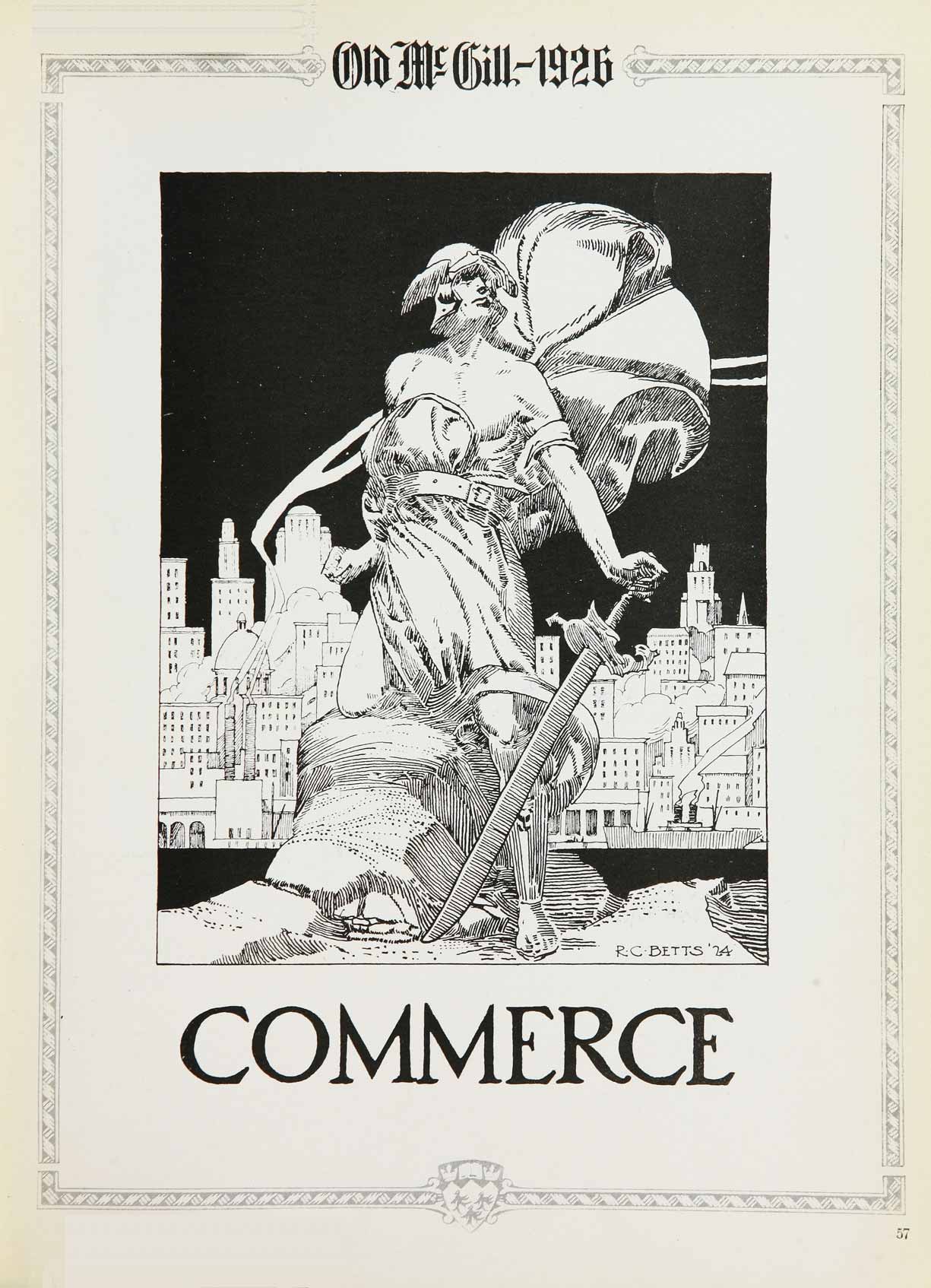
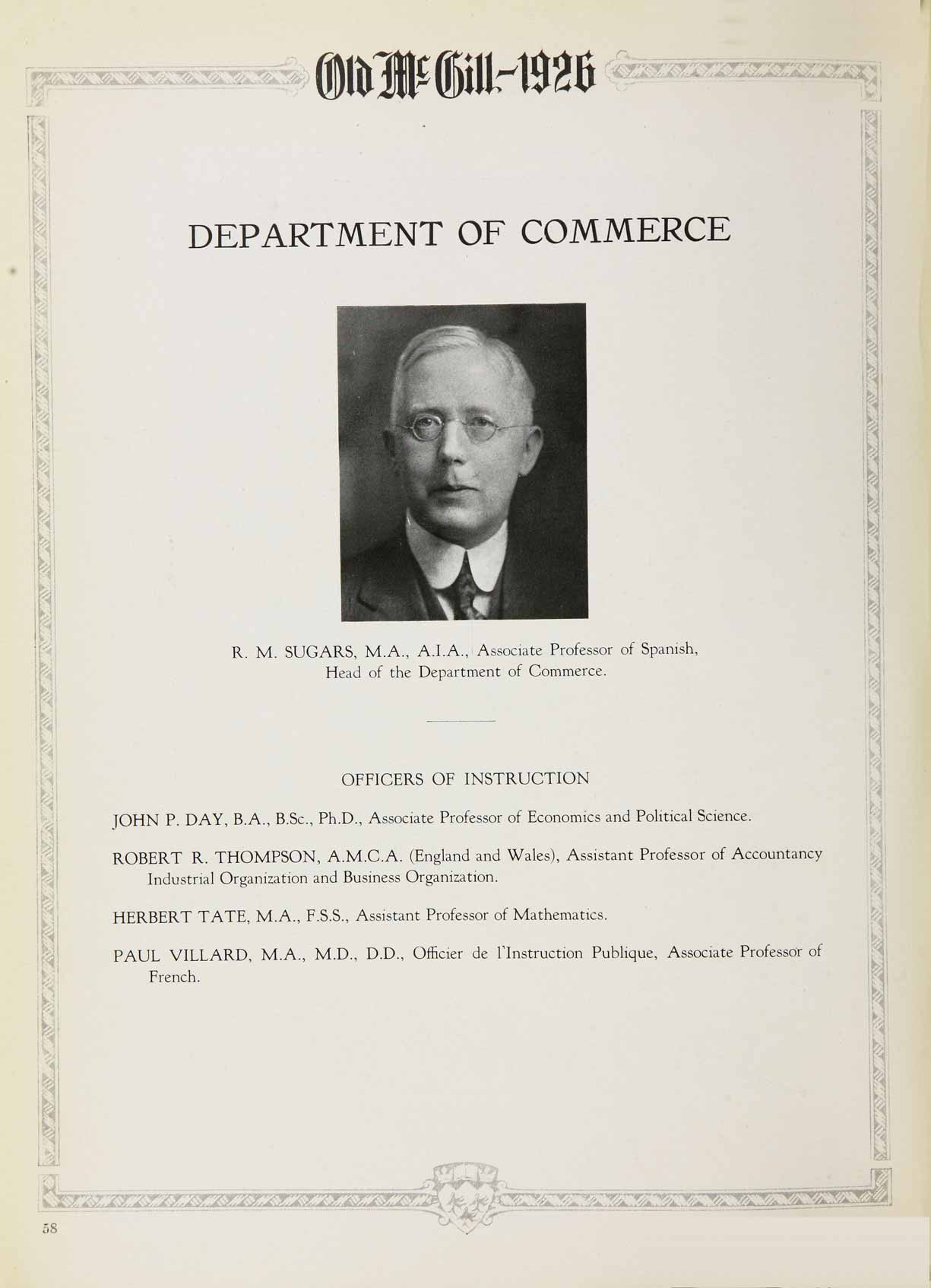

The Commercial Society
Back Row: J. Quinlan, E. M. Taggart
Middle Row: E. Witmer, J. Maughan, J. G. Glassco, J. E. Day, L. Stephenson, B. Davis
Front Row: Dr. P. Villard, T. E. Mitchell, R. M. Sugars, E. R. Hanna, R. R. Thompson
President: T. E. Mitchell
Vice-President: E. R. Hanna
Secretary: J. G. Glassco
Treasurer: L. Stephenson
The Commercial Society is now recognized as one of the most active student organizations of Old McGill. It has proven itself of immense value to the students both in faculty and undergraduate affairs and has been a most important factor in elevating the School of Commerce to its present status. This progress has been especially noted of late in the extension of the curriculum to four years and also in the installation of a representative on the Students’ Council.
Little need be said of the spirit of this society, as it is manifest in the size of its meetings and the untiring efforts of its executive. Owing to these efforts such men as Mr. Luther, of the Montreal Stock Exchange, F.P. Jones, of Canada Cement, Dr. Stephen Leacock, of McGill, and H. B. MacKenzie, of the Bank of Montreal, have been procured for speakers at the meetings. Mr. Luther supplemented his speech by an invitation to visit the home of the bulls and bears which was readily accepted and a most interesting expedition to visit the home of the bulls and bears which was readily accepted and a most interesting expedition was made by the senior year. These addresses have been both interesting and stimulating; their subjects have been varied although for the most part they ere of a commercial nature.
This spring the society entertained at a similar banquet to that held in 1923. Several prominent Montreal business men were present and during the evening addressed the gathering. These dinners do much to enhance the students’ connections with the financial world and are becoming institutions in themselves.
The last few years have been full of success, the future is bright with promise, and all being well the name of Commerce shall soon be emblazoned as a faculty in the annals of our Alma Mater.
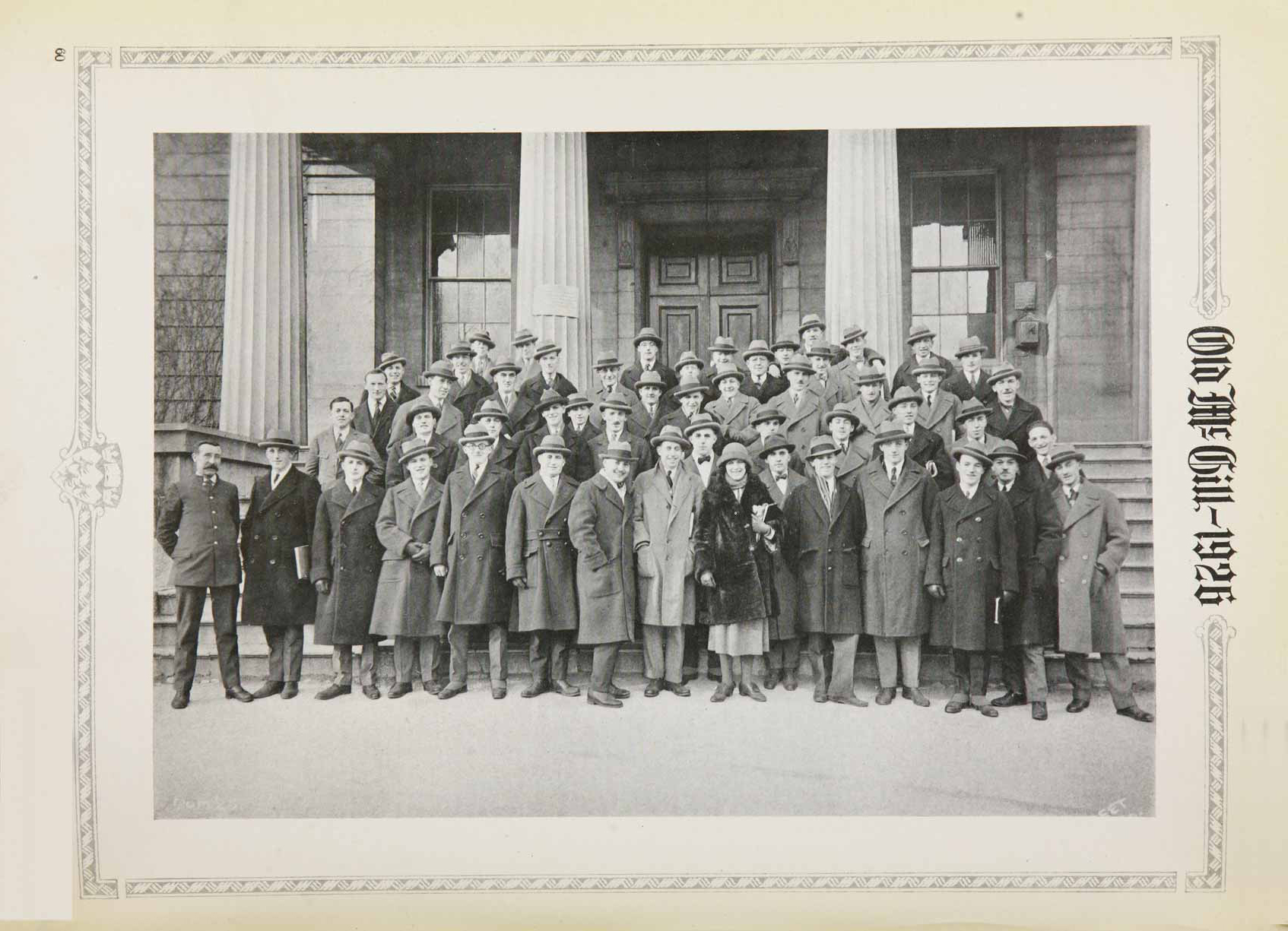
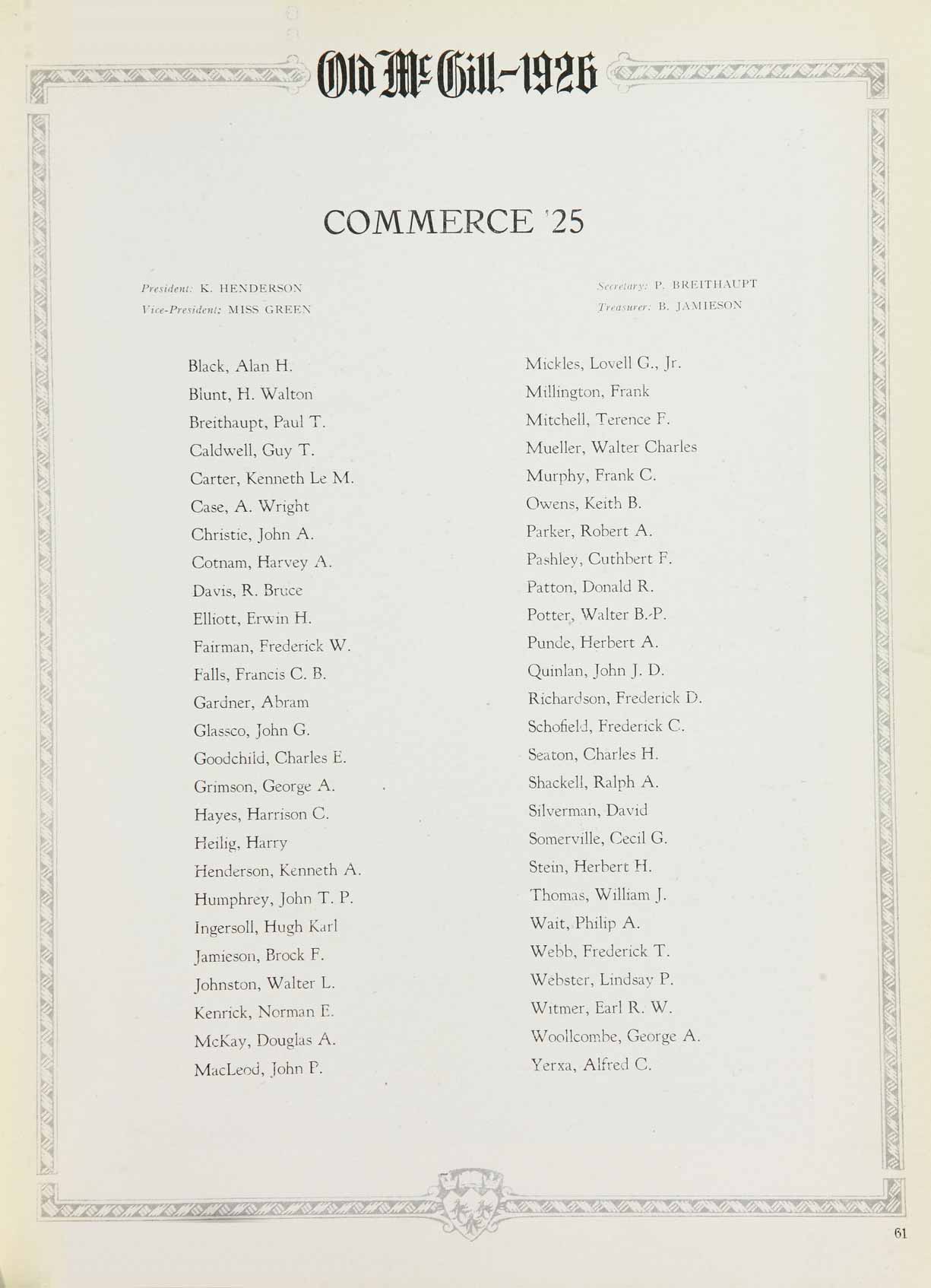

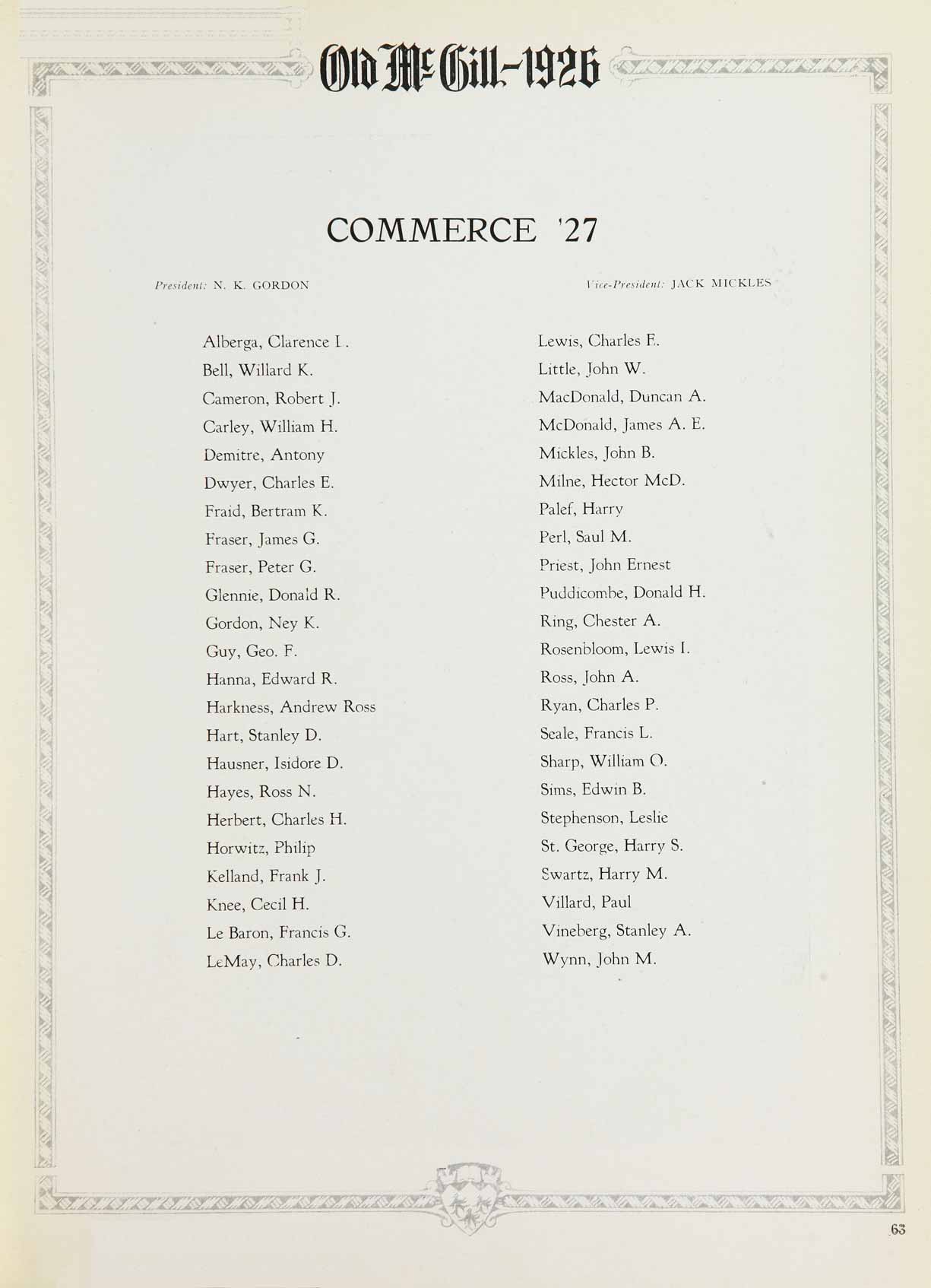
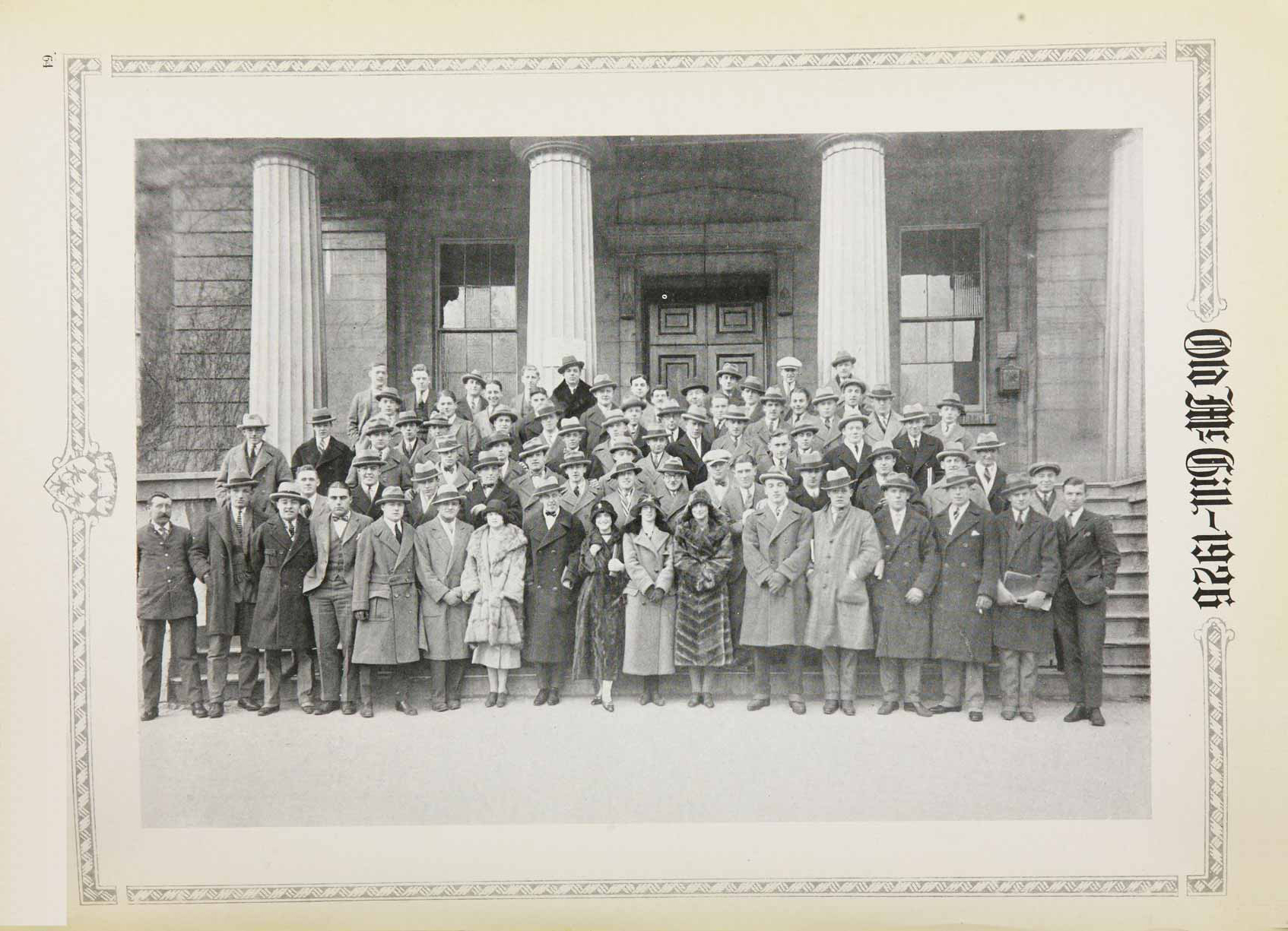

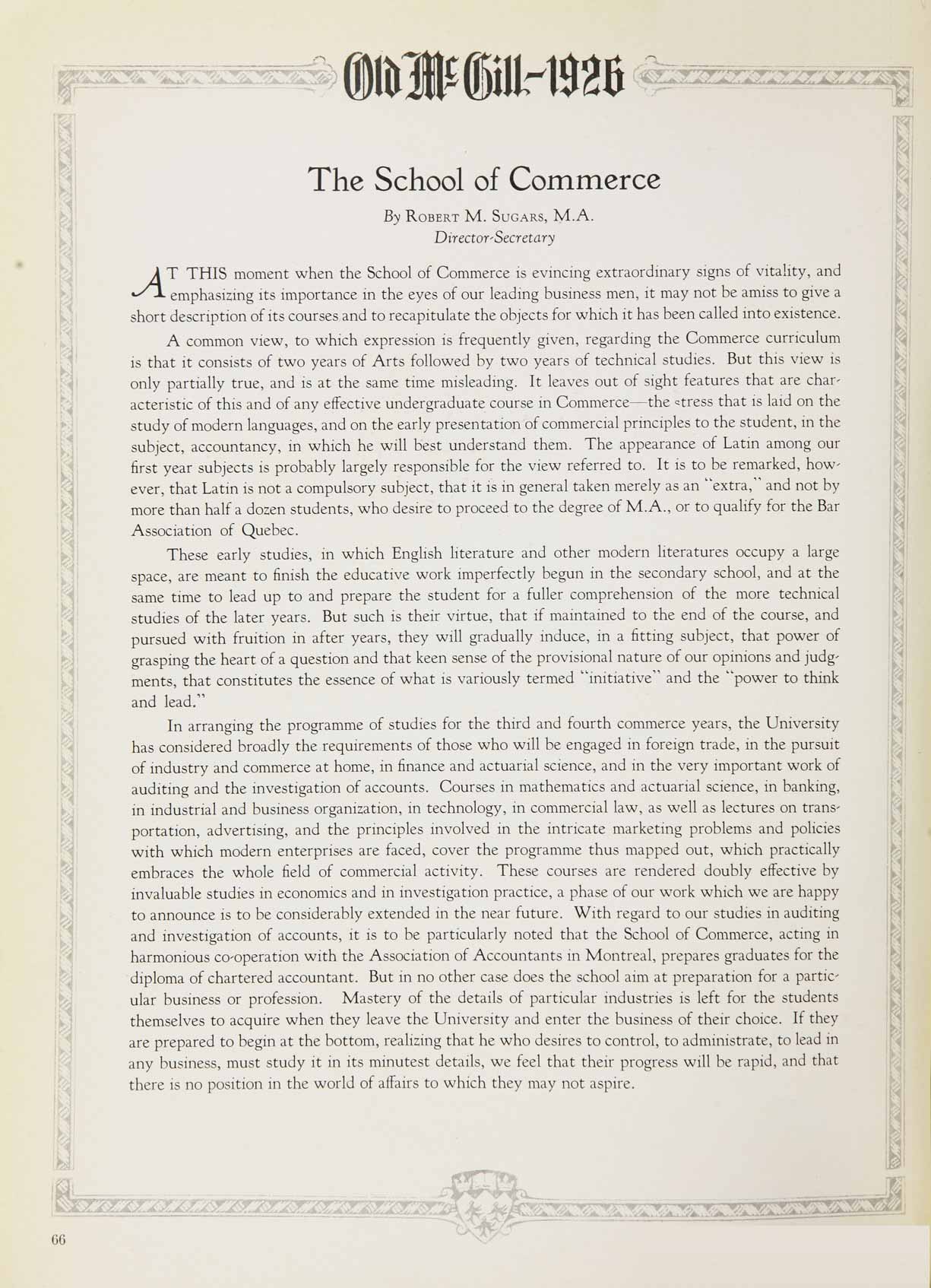
The School of Commerce
By Robert M. Sugars, M.A.
Director-Secretary
At this moment when the School of Commerce is evincing extraordinary signs of vitality, and emphasizing its importance in the eyes of our leading business men, it may not be amiss to give a short description of its courses and to recapitulate the objects for which it has been called into existence.
A common view, to which expression is frequently given, regarding the Commerce curriculum is that it consists of two years of Arts followed by two years of technical studies. But this view is only partially true, and is at the same time misleading. It leaves out of sight features that are characteristic of this and of any effective undergraduate course in Commerce—the stress that is laid on the study of modern languages, and on the early presentation of commercial principles to the student, in the subject, accountancy, in which he will best understand them. The appearance of Latin among our first year subjects is probably largely responsible for the view referred to. It is to be remarked, however, that Latin is not a compulsory subject, that it is in general taken merely as an “extra,” and not by more than half a dozen students, who desire to proceed to the degree of M.A., or to qualify for the Bar Association of Quebec.
These early studies in which English literature and other modern literatures occupy a large space, are meant to finish the educative work imperfectly begun in the secondary school, and at the same time to lead up to and prepare the student for a fuller comprehension of the more technical studies of the later years. But such is their virtue, that if maintained to the end of the course, and pursued with fruition in after years, they will gradually induce, in a fitting subject, that power of grasping the heart of a question and that keen sense of the provisional nature of our opinions and judgements, that constitutes the essence of what is variously termed “initiative” and the “power to think and lead.”
In arranging the programme of studies for the third and fourth commerce years, the University has considered broadly the requirements of those who will be engaged in foreign trade, in the pursuit of industry and commerce at home, in finance and actuarial science, and in the very important work of auditing and the investigation of accounts. Courses in mathematics and actuarial science, in banking, in industrial and business organization, in technology, in commercial law, as well as lectures on transportation, advertising, and the principles involved in the intricate marketing problems and policies with which modern enterprises are faced, cover the programmes thus mapped out, which practically embraces the whole field of commercial activity. These courses are rendered doubly effective by invaluable studies in economics and in investigation practice, a phase of our work which we are happy to announce is to be considerably extended in the near future. With regard to our studies in auditing and investigation of accounts, it is to be particularly noted that the School of Commerce, acting in harmonious co-operation with the Association of Accountants in Montreal, prepares graduates for the diploma of chartered accountant. But in no other case does the school aim at preparation for a particular business or profession. Mastery of the details of particular industries is left for the students themselves to acquire when they leave the University and enter the business of their choice. If they are prepared to begin at the bottom, realizing that he who desires to control, to administrate, to lead in any business, must study it in its minutest details, we feel that their progress will be rapid, and the there is no position in the world of affairs to which they many not aspire.
McGill Yearbook: 1926
See original pages: Cover | 1 | 2 | 3 | 4 | 5 | 6 | 7 | 8 | 9 | 10

